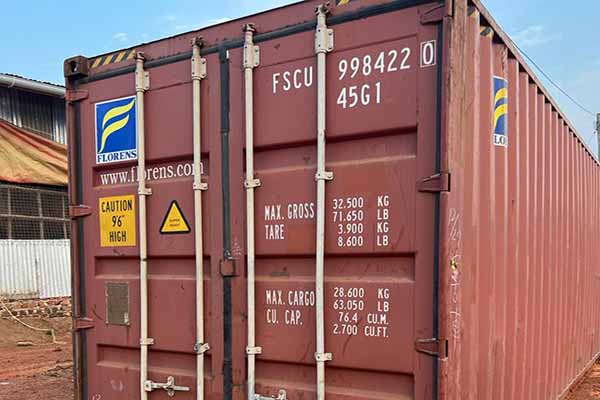How to Reduce Feed Waste in Your Kenya Chicken Farm: Expert Tips from Livi Machinery
Time : 2025-07-24
As a leading poultry equipment manufacturer from China, Livi Machinery understands the importance of efficient feed management in chicken farming. In Kenya, where the poultry industry is rapidly growing, minimizing feed waste is crucial for sustainable and profitable farming practices. In this article, we’ll explore effective strategies to reduce feed waste in your Kenya chicken farm, leveraging our expertise in poultry equipment.
Understanding the Problem of Feed Waste
Feed waste in chicken farming can occur due to various reasons, including spoilage, inefficient feeding systems, and overfeeding. This not only leads to financial losses but also has environmental implications. By implementing the right strategies and using high-quality poultry equipment, you can significantly reduce feed waste.
1. Invest in High-Quality Feeders
The right feeders are essential for minimizing feed waste. Livi Machinery offers a range of feeders designed to optimize feed distribution and prevent spillage. Here are some key features to consider:
– Automatic Feeders: These feeders automatically dispense feed at regular intervals, ensuring that chickens receive the right amount of feed without overeating.
– Adjustable Feed Hopper: Our feeders come with adjustable hoppers that allow you to control the amount of feed dispensed, reducing the risk of waste.
– Waterproof Design: Our feeders are designed to be waterproof, preventing feed from getting wet and spoiling.
2. Implement a Regular Feeding Schedule
A consistent feeding schedule helps prevent overeating and reduces feed waste. Here’s how you can implement an effective feeding schedule:
– Determine the Right Feeding Times: Chickens have different feeding needs at different stages of growth. Consult with a poultry nutritionist to determine the optimal feeding times for your flock.
– Use a Timer: Set a timer for your feeders to dispense feed at the same time every day. This ensures that chickens receive feed when they’re most likely to eat it.
– Monitor Consumption: Regularly check feed consumption to ensure that the schedule is working effectively and adjust as needed.
3. Optimize Feed Storage
Proper feed storage is crucial for preventing spoilage and reducing waste. Here are some tips:
– Store Feed in a Cool, Dry Place: Feed should be stored in a cool, dry environment to prevent mold and insect infestation.
– Use Airtight Containers: Store feed in airtight containers to prevent moisture and pests from contaminating it.
– Rotate Feed Stock: Regularly rotate your feed stock to ensure that older feed is used first, reducing the risk of spoilage.
4. Use Precision Feeding Systems
Precision feeding systems are designed to provide the right amount of feed to each chicken, minimizing waste. Livi Machinery offers advanced feeding systems that include:
– Individual Feeding Units: These units allow you to feed each chicken individually, ensuring that they receive the correct amount of feed.
– Automatic Weight Monitoring: Our systems can automatically monitor the weight of each chicken, adjusting feed intake accordingly.
5. Regularly Clean and Maintain Feeders
Regular cleaning and maintenance of feeders are essential for preventing feed waste. Here’s what you should do:
– Clean Feeders Daily: Remove any leftover feed and clean feeders daily to prevent the growth of bacteria and mold.
– Inspect Feeders Regularly: Check for any signs of wear and tear and replace parts as needed to ensure that feeders are functioning properly.
6. Educate Your Workers
Lastly, educating your workers on the importance of feed management and waste reduction is crucial. Here are some tips:
– Training Sessions: Conduct regular training sessions to ensure that all workers understand the proper use and maintenance of feeders and storage systems.
– Encourage Reporting: Encourage workers to report any issues with feed waste immediately so they can be addressed promptly.
Conclusion
Reducing feed waste in your Kenya chicken farm is essential for sustainable and profitable farming. By investing in high-quality poultry equipment, implementing a regular feeding schedule, optimizing feed storage, using precision feeding systems, regularly cleaning and maintaining feeders, and educating your workers, you can significantly reduce feed waste and improve your farm’s efficiency.
For more information on how Livi Machinery can help you reduce feed waste in your chicken farm, contact us today.












